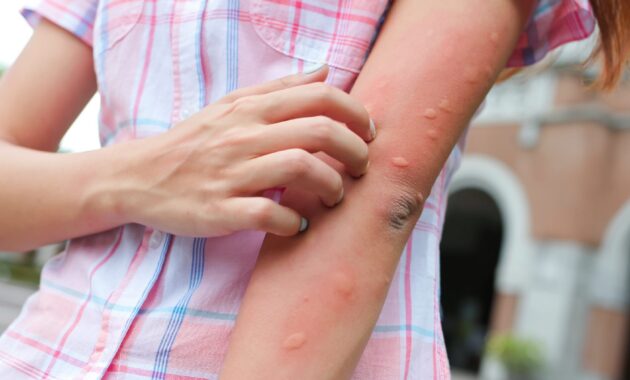Every year on August 20th, the world observes World Mosquito Day to create awareness about the dangers of mosquitoes and how to protect ourselves from mosquito-borne diseases. Beyond malaria and dengue, mosquitoes are responsible for the transmission of numerous other diseases that continue to impact millions of lives globally. We delve into some of the most significant mosquito-borne diseases that everyone should be aware of.
Mosquito-borne disease
Here are 7 most common diseases caused by mosquito bites you should know about:
1. Malaria
Malaria is one of the most well-known mosquito-borne diseases that affects millions annually. It is caused by a single-celled parasite of the genus Plasmodium. The parasite is transmitted to humans most commonly through mosquito bites. Dr Rajesh Kumar Budhiraja, Internal Medicine, Asian Hospital Faridabad, says, “It leads to fever, chills, headache, muscle ache, and flu-like symptoms. In serious cases, symptoms include respiratory problems, decreased cognition, and organ failure. If left untreated, malaria can be fatal. To prevent it, use bed nets, indoor residual spraying, and antimalarial medications.”

2. Dengue
“The Aedes mosquito, which spreads dengue, breeds in stagnant water bodies, often at construction sites, hot water tanks, swimming pools, plants, and abandoned garbage that has been left untreated for a long period,” says Dr Kumar. Its symptoms include high fever for a week or more, severe joint and muscle pain, discomfort in the eyes, and, in severe cases, hemorrhagic fever or shock syndrome. Those who contract dengue again are more likely to develop severe dengue, which can be life-threatening.
3. Chikungunya
Aedes aegypti mosquitoes are responsible for carrying and transmitting the infectious chikungunya virus to humans. Some of the typical symptoms include fever, joint discomfort and swelling, muscle soreness, headache, and rash, among others. Dr Kumar says, “While the person infected with chikungunya tends to get better within a week and is rarely fatal, the joint discomfort may last for months or even years.”
Also read: Is it true that mosquitoes bite some people more? An expert reveals
4. Zika virus
Zika virus, transmitted by Aedes mosquitoes, gained worldwide attention due to its side effects like birth defects and neurological disorders. Hence, pregnant women and those planning pregnancy are advised to take precautions. It can develop similar symptoms to dengue, such as fever, headache, rash, joint pain, and red eyes. To prevent it, use insect repellents, wear long-sleeved clothing, and eliminate mosquito breeding sites.
Select Topics of your interest and let us customize your feed.
PERSONALISE NOW

5. Yellow fever
Yellow fever is a viral infection transmitted by Aedes mosquito. Symptoms range from mild fever, chills, loss of appetite, nausea, back discomfort, headache, and fatigue to severe jaundice and internal bleeding. “Though the condition of patients with yellow fever usually improves within five days, it is responsible for claiming the lives of 30,000 individuals annually worldwide,” says Dr Kumar. But yellow fever does not occur in India.
6. West Nile virus
“Transmitted through the bite of infected Culex mosquitoes, the West Nile virus can cause a range of symptoms, from mild fever to severe neurological conditions,” says Dr Aniket Mule, consultant internal medicine, Wockhardt Hospitals, Mira Road, Mumbai. While the majority of cases are mild, older adults and individuals with weakened immune systems are at higher risk of developing severe complications.
7. Japanese encephalitis
“Japanese encephalitis is a viral brain infection that is transmitted by Culex mosquitoes. While most cases are mild or asymptomatic, severe cases can result in inflammation of the brain and lead to coma or death,” says Dr Mule. Vaccination is recommended for those residing in or travelling to affected regions.
How to prevent mosquito-borne diseases?
Follow these 5 tips to prevent mosquito-borne diseases:
1. Use insect repellent
One of the most effective ways to prevent mosquito bites and reduce the risk of mosquito-borne diseases is to use insect repellent. Choose DEET-containing insect repellent, as it is most effective against mosquitoes and is long-lasting.

2. Proper clothing is a must
Wear protective clothing, and preferably choose long-sleeved, light-coloured clothes made from breathable fabrics such as cotton.
3. Don’t let water accumulate around you
Mosquitoes breed in standing water, so make sure to clean and empty any containers that can hold water, such as pots, buckets, and flower vases.
4. Use mosquito net
Sleeping under a mosquito net can also help prevent mosquito bites. Ensure the net doesn’t have any holes or tears and is properly secured and tucked under the mattress to prevent the entry of mosquitoes.
5. Stay indoors
Lastly, mosquitoes are most active during dawn and dusk, so staying indoors during these times can significantly reduce your risk of being bitten.
Keep these tips in mind and avoid increasing your risk of getting mosquito-borne diseases!
#World #Mosquito #Day #mosquito #borne #diseases
